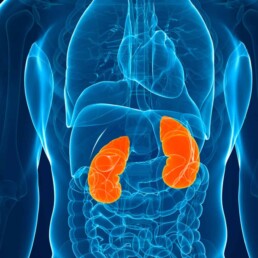As we delve deep into countless medical journals to uncover the latest on Integrative Medicine’s approach to kidney health, we are always reminded of the value of your time. Our commitment remains steadfast in curating and succinctly summarizing these vital studies for you. Welcome to the September Research and News.
Shining New Light: The Epimeric Form of Vitamin D in Kidney Function
A recent study in Nephrology Dialysis Transplantation scrutinizes the role of epimeric form of vitamin D, known as 3-epi-25(OH)D3, in the cardiovascular health of patients with advanced Chronic Kidney Disease (CKD).
The research involved 165 patients, including those who had undergone kidney transplantation and those on the waitlist. Patients underwent cardiopulmonary exercise tests and echocardiography at various intervals.
The study found that patients with lower levels of 3-epi-25(OH)D3 showed decreased peak oxygen uptake, which is a crucial marker for cardiovascular capacity.
Moreover, the study revealed that this particular form of vitamin D was linked to cardiovascular functional capacity over time in both transplanted and non-transplanted patients, although it didn’t show a significant relationship with other cardiovascular outcomes like left ventricular mass or arterial stiffness.
Understanding the role of 3-epi-25(OH)D3 in cardiovascular health holds significant implications for the treatment and management of advanced CKD patients. Cardiovascular issues are one of the leading complications in CKD, often leading to dire consequences.
The study’s findings present an avenue for potentially modulating cardiovascular function through the management of 3-epi-25(OH)D3 levels.
This could mean more targeted therapies and perhaps a better quality of life for patients struggling with both kidney disease and associated cardiovascular complications.
If you want to learn more about epimeric vitamin D, this review might be helpful.
Unveiling the Link: Metabolic Syndrome, Hyperfiltration, and Kidney Health
This research, published in July 2023, investigates the relationship between metabolic syndrome (MetS), hyperfiltration, and the long-term decline in glomerular filtration rate (GFR) in a non-diabetic general population aged 50 to 63.
Conducted as part of the Renal Iohexol Clearance Survey (RENIS), the study involved 1,551 participants who were free from diabetes, cardiovascular disease, and kidney disease.
The research found that individuals with MetS were more likely to have hyperfiltration at baseline and experienced a faster rate of GFR decline during the 11-year follow-up.
The study quantifies the GFR decline as significantly steeper in individuals with MetS and baseline hyperfiltration compared to those without MetS.
Why is this Important?
This study sheds light on the complex interplay between MetS, hyperfiltration, and long-term kidney function. Given that a quarter of adults worldwide meet the criteria for MetS—a condition known to increase the risk for diabetes and cardiovascular disease—the findings hold broad public health relevance.
Understanding that MetS can lead to hyperfiltration and faster GFR decline offers a new perspective on how metabolic health impacts renal function.
These insights emphasize the need for early interventions in patients with metabolic syndrome to prevent the development of CKD.
Join us to end the kidney disease epidemic
Mind Over Kidney: The Impact of Psychological Distress on CKD Self-Management
The cross-sectional study, published in August 2023, explores the link between psychological distress and self-management behaviors in patients with chronic kidney disease (CKD) not on dialysis.
Conducted in four hospitals in The Netherlands, the study used online questionnaires to collect data from 460 CKD patients. The results show that 27.2% of the sample reported experiencing psychological distress, including depressive and anxiety symptoms.
This distress was found to be significantly correlated with poorer dietary adherence, reduced physical activity, and lower medication adherence. However, no significant associations were found with smoking and body mass index.
The study addresses an often-overlooked facet of CKD management: the psychological well-being of patients. The data make it clear that psychological distress is not just a peripheral issue but a significant barrier to effective self-management in CKD.
As the disease already imposes a heavy burden on the healthcare system, understanding the impact of psychological factors can help in the development of targeted behavioral interventions.
Such interventions could be critical for improving adherence to treatment regimens, thereby potentially slowing disease progression and enhancing the quality of life for CKD patients.
The Hidden Risk: Elevated Metal Levels in Exclusive Marijuana Users
The study, published in August 2023, investigates the levels of metals in the blood and urine of exclusive marijuana users.
Using data from the National Health and Nutrition Examination Survey (2005–2018), the study included 7,254 participants categorized by their use of marijuana, tobacco, or both.
Five metals were measured in the blood, and 16 were measured in the urine. The results indicated that exclusive marijuana users had significantly higher levels of cadmium and lead in both blood and urine compared to non-users of either substance.
The study reveals a significant public health concern by demonstrating that exclusive marijuana use is associated with elevated levels of toxic metals like cadmium and lead.
Both cadmium and lead have been implicated in the development of kidney disease and hypertension.
As marijuana becomes increasingly legalized and accepted for recreational and medicinal use, the findings emphasize the need for further research on the contaminants found in cannabis.
This can inform regulations and guidelines to ensure the safety of an ever-growing number of cannabis users.
Review Article of the Month
Lipid Dysregulation in CKD: A Pathway to New Frontiers
The review article, published in Nature Reviews Nephrology in July 2023, focuses on the role of lipid dysmetabolism and lipid droplet accumulation in the progression of chronic kidney disease (CKD).
The article points out that lipid accumulation in the kidney may drive inflammation and fibrosis, similar to its role in fatty liver diseases.
It discusses the complexity of understanding the link between lipid accumulation and CKD due to the variety of lipid species and their functional roles in different kidney cells.
The review also highlights the potential of newly developed lipid-targeting strategies that can delay or halt kidney disease.
You can download the full PDF here.
Join here to receive FREE monthly updates on the latest research in Integrative Nephrology and tips on managing kidney disease straight to your inbox.
We would love to hear your feedback. Let us know what you think of these educational materials and if you like us to focus on specific topics. Please email us at info@inkidney.com.






